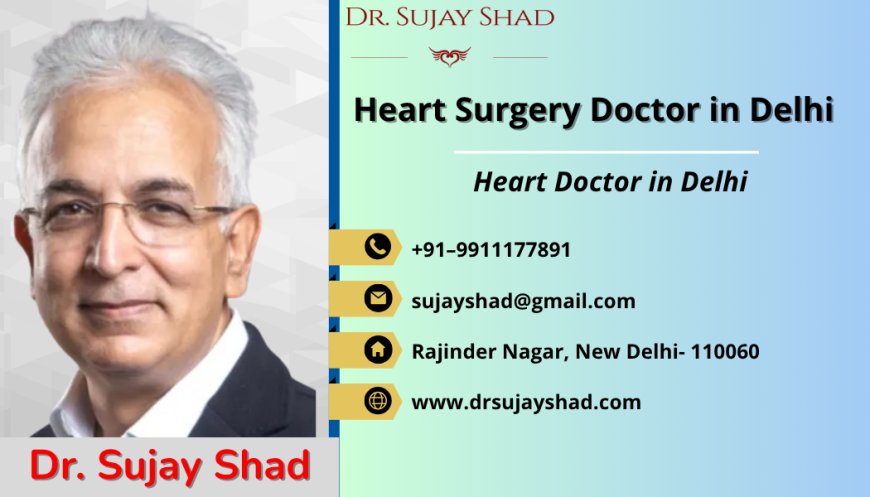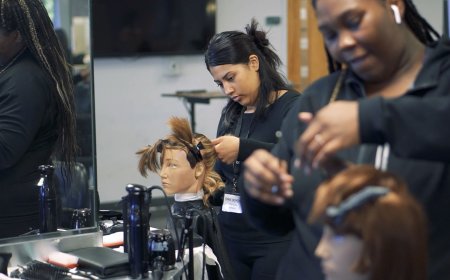FAQs About Mitral Valve Repair Surgery Discussed
Here we have answers to some of the most asked questions on mitral valve repair surgery- answered.

Have you been recommended for mitral valve repair surgery or find it to be a possible treatment for your heart ailment? On this page, you can gather information on mitral valve repair so that you make a well-informed decision about undergoing it. Here we have answers to some of the most asked questions on mitral valve repair surgery- answered by top-rated cardiac surgeon for Mitral Valve Repair in India.
10 FAQ Question & Answer Mitral Valve
-
What is mitral valve repair?
Mitral valve repair is a surgical procedure to fix a diseased or damaged mitral valve and restore normal blood flow to the heart.
-
Why is mitral valve repair surgery performed?
The mitral valve is the one-way door for the oxygenated blood flow between the left atrium and left ventricle of the heart. There are two common mitral valve dysfunctions- regurgitation (leakage/backflow of blood) and stenosis (narrowing). The mitral valve surgery repairs these issues and gets the blood flow normal through the heart.
-
What happens during mitral valve repair surgery?
A mitral valve repair surgery can be done through a traditional open-heart approach or an advanced minimally invasive technique, depending on the Heart Surgery Doctor in Delhi, preference and the nature of mitral valve damage.
In the traditional approach, the surgeon makes a large incision in the chest, specifically in the middle of the breastbone to get access to the heart. Another cut is made in the left atrium to have access to the damaged or diseased valve.
Through the cut, the suitable repair technique: Annuloplasty, Chordal replacement, Leaflet repair, or Resection is performed and then incisions are sewed. In the advanced approach, keyhole incisions are made along the ribs, and with the help of an endoscope or robot assistance, the repair is performed.
-
What are the side effects and risks of undergoing mitral valve repair?
The potential side effects and risks of mitral valve repair surgery are blood clots, bleeding, infection, arrhythmia, breathing problems, valve failure, stroke, wound healing issues, anesthesia-related risks, and others. Generally, the surgery is 100% safe when done by a highly experienced cardiac surgeon and the patient strictly follows the aftercare routine. Details on the surgery risks and complications are given during consultation with the surgeon.
-
How soon can I expect to see the results of mitral valve repair?
The time taken for the mitral valve to start functioning normally again and the symptoms to completely subside is variable. Some patients experience immediate relief while others notice improvements within 1-2 months or more. Follow-up appointments with the surgeon are needed to keep a check on the progress of the condition after surgical repair.
-
How long will be my recovery after mitral valve repair surgery?
The exact recovery time varies from one patient to another. It depends on the patient’s overall condition, strength, the chosen surgical approach, the adherence to aftercare, and how well or quickly the incision heals. Typically, a minimum of 4-8 weeks to a maximum of 12 weeks are needed for rest. Some patients recover soon.
-
How long does a mitral valve repair last?
It’s expected for a repaired mitral valve to last for 1-2 decades.
-
Which is best: mitral valve repair or mitral valve replacement?
Mitral valve repair is usually favored over replacement if the valve damage is not serious/complex. That’s because of its better long-lasting outcomes. The surgery restores the functioning of the original valve while preserving the natural heart anatomy. Studies reveal that mitral valve repair provides better survival rates and reduces the risk of complications like stroke and infection. Moreover, patients can set free from the use of blood thinners for lifelong.
-
What precautions will I need to take after undergoing mitral valve repair surgery?
After a mitral valve repair surgery, the surgeon instructs the patient to follow a proper heart-healthy lifestyle. Besides lifestyle modifications, the patient is asked to not miss on prescribed medications and go for cardiac rehabilitation. The patient has to avoid heavy weight lifting or strenuous workouts for several weeks until advised. Emotional well-being is also important so the patient should manage stress using stress relieving techniques. Keeping blood pressure, diabetes, and cholesterol under control is a must along with proper wound care at incision sites.
-
Is it safe to have an MRI scan after mitral valve heart repair?
Heart valve repair products are tested to be compatible during an MRI scan under specific conditions.
For more information, contact Dr. Sujay Shad. He is a leading cardiac surgeon and has performed many successful mitral valve heart repair surgeries. Based on one’s heart condition and age, it is possible to learn more about the Heart Surgery cost in Delhi. Most cases are covered by insurance. For more information, please contact Dr. Sujay Shad.










































































